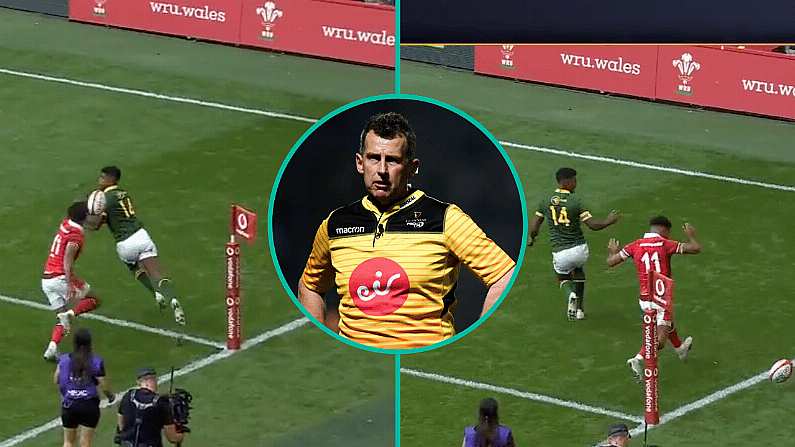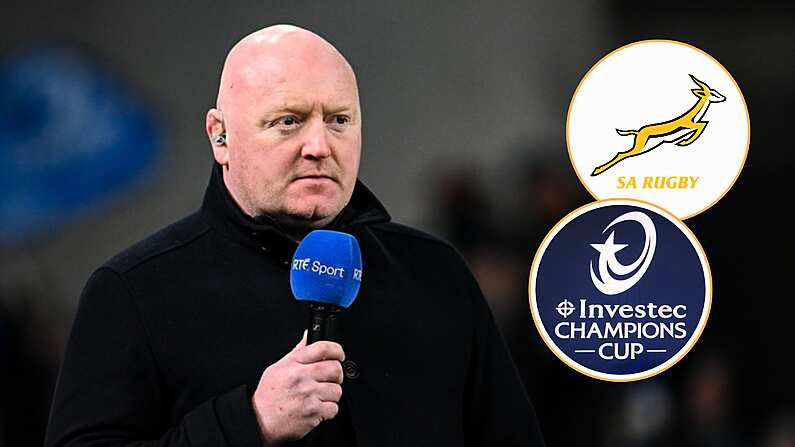While a number of teams will be pleased with the way they are performing ahead of the upcoming Rugby World Cup, few will have been more pleased with their performance last weekend than South Africa.
The Springboks were in imperious form, blowing Wales out of the water en route to a 52-16 victory in Cardiff. Warren Gatland's side are a poor outfit, but it was difficult not to come away impressed with the display from the visitors.
In saying that, they were very fortunate to be awarded a penalty try in the first half of the game.
During the incident Wales player Rio Dyer was adjudged to have denied a probable South African try when they knocked the ball into touch in the corner and away from Canan Moodie. It looked like a fairly innocuous incident at the time, with few expecting such a harsh punishment.
Pen try. #WALvRSA pic.twitter.com/xRdIGDjCM8
— Jared Wright (@jaredwright17) August 19, 2023
In the end referee Andrew Brace and TMO Joy Neville decided the incident was worthy of a penalty try. Rio Dyer was also given a yellow card for his troubles.
This decision has caused plenty of debate in recent days. This game may have been an inconsequential one, but some are worried about the precedent it sets ahead of the World Cup.
Nigel Owens disagreed with bizarre South Africa penalty try
The main issue with this decision was that it never looked as though Canan Moodie was going to score the try. The winger had been caught out by the bounce and had already missed his opportunity to get his hands on the ball.
Speaking to World Rugby, Nigel Owens summed up why the officials got it wrong on this occasion.
The referee will give a penalty try if he/she thinks a try probably would have been scored. That is the key word I want you to remember: 'probably'...
What they saw was the hand of Rio Dyer knocking the ball forward, which means it has become deliberate and hence we have foul play action...
The South African player is going for the ball, but he misses. He can't gather the ball and the ball is now behind him, which means even though Rio Dyer's actions contributed to what happens next, the South African player was never going to get that ball to score a try.
So we now have the try probably wouldn't have been scored. That rules out the penalty try.
The key thing is that the South African player actually touches the ball first, which means the ball has been knocked on, so the actions of Dyer afterwards do not count.
It shouldn't be a penalty try. Because the ball is touched by the South African player, it shouldn't be a yellow card and a penalty.
The referee was playing advantage to South Africa for offside, meaning those actions are void. He should have went back and given the penalty to South Africa where the offside took place.
Owens certainly has a point here.
Moodie was never going to score the try, having already missed the ball. As a result, it was strange to see the officials deem the offence worthy of a penalty try.
It will be interesting to see what the approach will be if a similar incident pops up in the weeks ahead.











